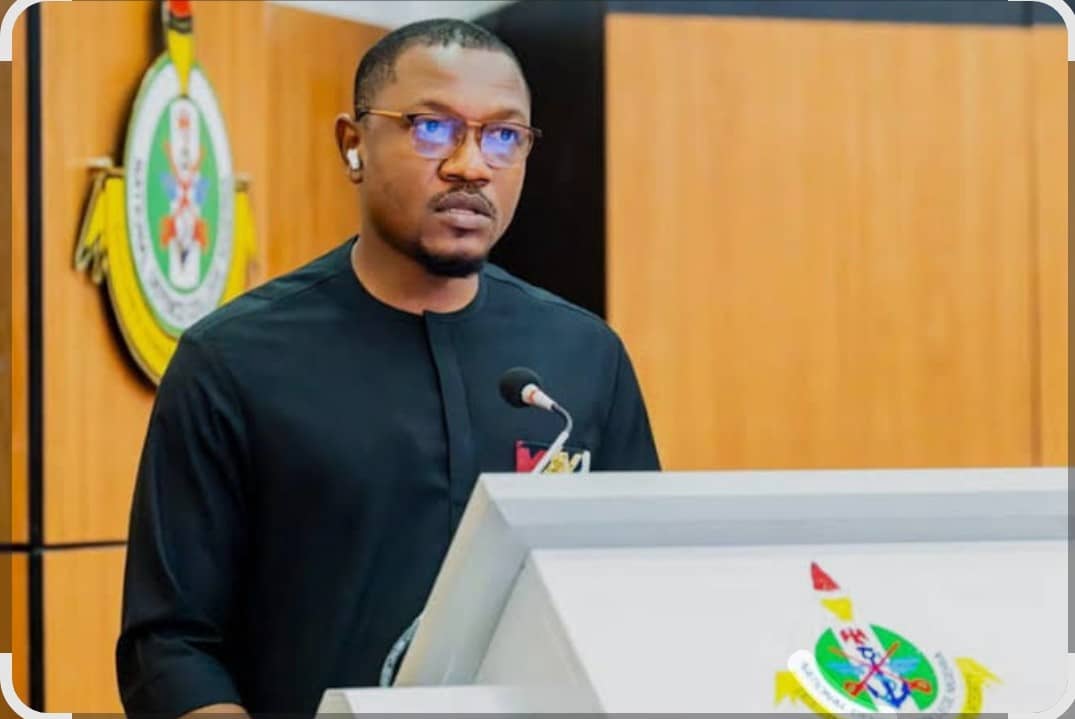Telecom
NOI Polls Urge Regulator Sanction Telcos for Worsening QoS
Consumers of telecommunications services measure value for money and preference for networks by service quality and affordable tariff rates, according to a recent poll conducted by NOI Polls, a leading opinion polling and research organization.
NOI Poll also found that Nigerians would like to see telecom regulators show more firmness in mandating the telecoms operators to improve on the quality of their services.
The opinion poll which was conducted from October 19 – 22 involved telephone interviews of a random nationwide sample involved 758 randomly selected phone-owning Nigerians aged 18 years and above, representing the six geopolitical zones in the country.
According to the poll, majority of the respondents asked for sanctions for operators that are not adhering to service quality standards.
Oge Funlola Modie, MD/CEO, NOI Polls Limited said that with a sample of this size, “we can say with 95 per cent confidence that the results obtained are statistically precise – within a range of plus or minus 5 per cent of what they would have been if the entire population had been surveyed”
The poll is part of an ongoing exercise conducted by NOI Polls to rapidly assess public sentiment following various social, political or economic events.
NOI Polls is a Nigeria based opinion research organization which works in technical partnership with Gallup (USA), to conduct periodic opinion polls on various socioeconomic issues in Nigeria.
In usage of the mobile networks, the result from the poll revealed that the majority of respondents (45 per cent ) use dual lines, while the minority (26 per cnet) either use a line or multiple lines(29 per cent :more than 2 lines).
Modie said that probing further, the need for dual or multiple lines was essential for the following key reasons: the lack of network reliability on all networks tied to the ease of switching to another line in the event of a network failure; and affordable tariffs on competing networks that allow for longer talk time.
The poll further found that for the respondents that use only one line (26 per cent of the total); MTN clearly leads the market with 89per cent subscribers and is followed by Airtel 5per cent, Glo 4 per cent and Etisalat 2per cent.
For majority that use dual lines, majority of this group (34 per cent) use a combination of MTN and Etisalat Lines whilst 31per cent use MTN and Glo and 29 per cent use MTN and Airtel lines respectively.
On mobile netwok frequently used; the respondents sampled, majority rooted for MTN as with 78 per cent while 9 per cent use Airtel. Glo and Etisalat were tied at 6 per cent.
A look at the ratings of the mobile network operators along main lines used showed a majority of subscribers (31 per cent) to the Etisalat rating their network very good versus a majority of MTN subscribers (40per cent) rating their network average on performance.
Airtel came second with 43per cent of their subscribers rating their performance as good whilst a majority of Glo subscribers (45per cent) rate their network operator as average.
Results indicated that Etisalat subscribers rate their MNO higher than other subscribers of other MNOs. Again this was tied to perceived value received from the MNOs.
When respondents were asked if they felt they were getting value for money from their main network provider, the majority (55per cent) expressed satisfaction. Interestingly though, from the respondents that use MTN as their main lines, only 53per cent affirmed that they were getting for money, while those using Etisalat 76per cent, Airtel 62per cent and Glo 55 per cent also answered yes.
These results indicate that across the four major GSM network providers, subscribers of Etisalat and Airtel are more of the opinion that they are getting value for their money with Etisalat getting majority nods.
For the worst service; MTN’s network service was perceived to be the worst with 13 per cent of respondents while Glo and Airtel came second at 6 per cent.
A key point to note is that no respondent noted Etisalat as having the worst service.
Telecom
4 Dead, 20 Others Injured as Fire Engulfs Cairo Data Centre

Four people have been killed, with over 20 injured after a fire at Cairo data centre disrupted telecom services nationwide.

A fire at a major Telecom Egypt facility in Cairo on Monday has left four workers dead and at least 22 others injured, plunging parts of the capital into a communications crisis.
According to Hossam Abdel Ghaffar, spokesperson for Egypt’s Health Ministry, most injuries were due to smoke inhalation.
The blaze, which broke out at a key data centre operated by Telecom Egypt, the country’s primary fixed-line and internet provider, was brought under control later that day.
However, it caused widespread disruptions, halting phone services, affecting internet connectivity, and even interfering with digital banking operations.
Internet monitoring group NetBlocks reported that national connectivity dropped to just 62% of normal levels following the incident.
Residents across Cairo struggled with poor network access, and banks—although already closed for the day—reported interruptions in ATM services and online transactions.
In a statement on Tuesday, Telecom Egypt mourned the loss of its employees and pledged support to their families.
Amr Talaat, Egypt’s minister of Communications and Information Technology, assured the public that service restoration was underway and expected to be completed within 24 hours.
To address the disruption, the Health Ministry released alternative emergency contact numbers across Egypt’s governorates, in case its primary ambulance hotline remained unreachable.
The state-run MENA news agency reported that the fire was prevented from engulfing the entire building and nearby rooftops, thanks to the efforts of emergency responders.
A preliminary investigation suggests the fire was likely triggered by an electrical short circuit, according to a security source cited by MENA.
As the nation works to restore full connectivity, the incident has raised fresh concerns about the vulnerability of critical infrastructure and the need for enhanced fire safety protocols in sensitive tech facilities.
Telecom
Globalcom Thrills Subscribers with 3 New Digital Products

Tech faints, Globalcom, on Tuesday unveiled three exciting digital products aimed at rewarding customers. The products, Animation World Promo, Treasure Spin and Sport Brain, also provide subscribers with the opportunity to play and win instant prizes.

Globalcom in a statement in Lagos said that the company is dedicated to providing value-added service to its ever-growing customers.
The first digital product, which is Animation World Promo, is an innovative trivia-based service aimed at challenging customers culinary knowledge of Nigerian food. With it, subscribers engage in answering food related questions, earn points and win delicious prizes.
For Treasure Spin, customers are availed the digital treasure spin experience. With each spin Glo subscribers stand a chance to win instant prizes, making every participation exciting and rewarding.
In addition, Globalcom captures the heart of football lovers with Sport Brain. Subscribers are allowed to predict football scores in matches across top leagues all around the world. Customers get to select their preferred leagues. “It’s a fun and competitive way for football lovers to test their instincts and knowledge,” the company noted.
Customers who subscribe to any of the three services stand a chance to win fantastic daily, weekly, and monthly prizes. Every day, 20 participants will receive ₦1,000 cash, ₦1,000 airtime, and 3.5GB data. On a weekly basis, five lucky winners will walk away with ₦100,000 each, while one grand prize winner will receive ₦1 million every month.
To participate, customers are required to dial *13055*2# for Animation World Promo,*13199*3# for Treasure Spin and *13199*2# for Sport Brain. Each plan can be activated either as a one-time purchase or Auto Renewal.
Globacom further explained that all products are available at an affordable subscription rate of ₦100 for a daily plan, ₦300 for weekly plan and ₦500 for monthly plan.
In concluding, the company disclosed that the services are available to all Glo prepaid and postpaid subscribers nationwide.
Telecom
SiBAN Applauds Interstellar’s Groundbreaking Role in Africa’s Blockchain Future

The Stakeholders in Blockchain Technology Association of Nigeria (SiBAN) has lauded Interstellar, one of its prominent members, for spearheading a major breakthrough in Africa’s financial technology space.

This follows Interstellar’s strategic partnership with the Pan-African Payment and Settlement System (PAPSS) to roll out the PAPSS African Currency Marketplace (PACM), a blockchain-based platform designed to address the continent’s long-standing currency inconvertibility challenge.
The initiative is already being hailed as a game-changer capable of eliminating the $5 billion annual trade friction currently plaguing intra-African commerce.
According to SiBAN President, Mr Obinna Iwuno, the development affirms Nigeria’s leadership in blockchain innovation, stating that Interstellar’s PACM is not only a technological feat but also a timely response to the African Continental Free Trade Area (AfCFTA) mandate of seamless and cost-effective regional trade.
PACM operates on STARGATE, a blockchain-agnostic system developed by Interstellar, and leverages the Bantu blockchain network to facilitate real-time, peer-to-peer exchanges of African currencies.
The solution ensures financial inclusion by allowing businesses, SMEs, and informal traders to transact in local currencies without relying on foreign intermediaries, all while maintaining regulatory compliance.
Mr Ernest Mbenkum, CEO of Interstellar, described the solution as Africa’s roadmap to financial sovereignty. “Blockchain is not just innovation; it is empowerment,” he said.
SiBAN reaffirmed its commitment to supporting policies and partnerships that promote secure, transparent, and inclusive digital economies.
The association further called on stakeholders in government and the private sector to prioritise blockchain adoption as a driver of national development.

 Telecom2 days ago
Telecom2 days agoY’ello Care’s 21-Day Campaign Bridges Digital Divide for Thousands Nationwide

 General News2 days ago
General News2 days agoEnugu Air Commences Operations Today

 E-Business2 days ago
E-Business2 days agoGalaxy Backbone, Rural Electrification Agency Commit to Deepening Digital and Energy Access Across Nigeria

 Broadcasting2 days ago
Broadcasting2 days agoNDPC Slaps Multichoice with ₦766M Fine for Data Privacy Violations

 News2 days ago
News2 days agoLagos-Calabar Highway Gets $100M Push from ECOWAS to Drive Regional Growth

 Telecom2 days ago
Telecom2 days ago20 Years of Digital Leadership: Layer3’s Legacy and the Road Ahead

 News2 days ago
News2 days agoNBS May Release Rebased Figures for Nigerian Economy July 11

 Telecom1 day ago
Telecom1 day agoNCC Wins Global ICT Award for Digital Awareness in Schools















